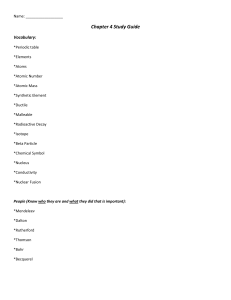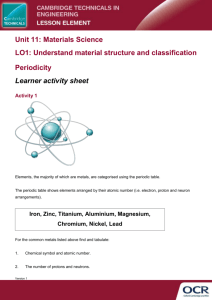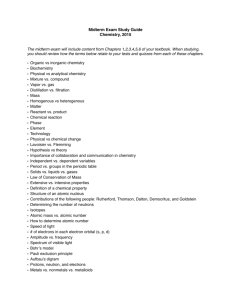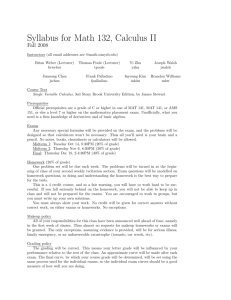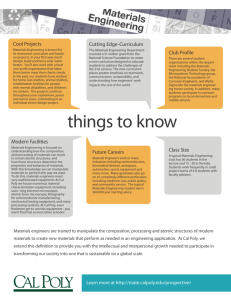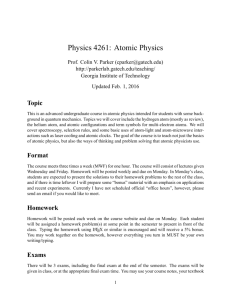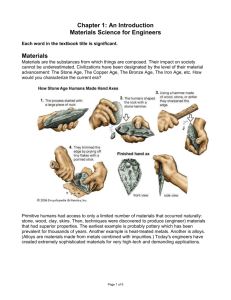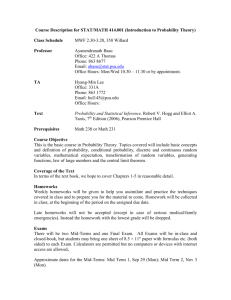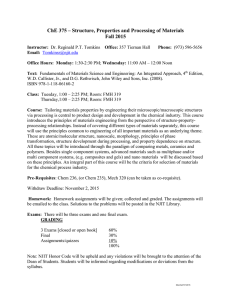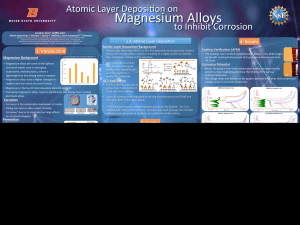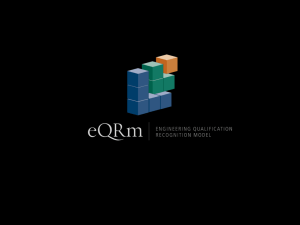inter american university of puerto rico bayamon campus school of
advertisement
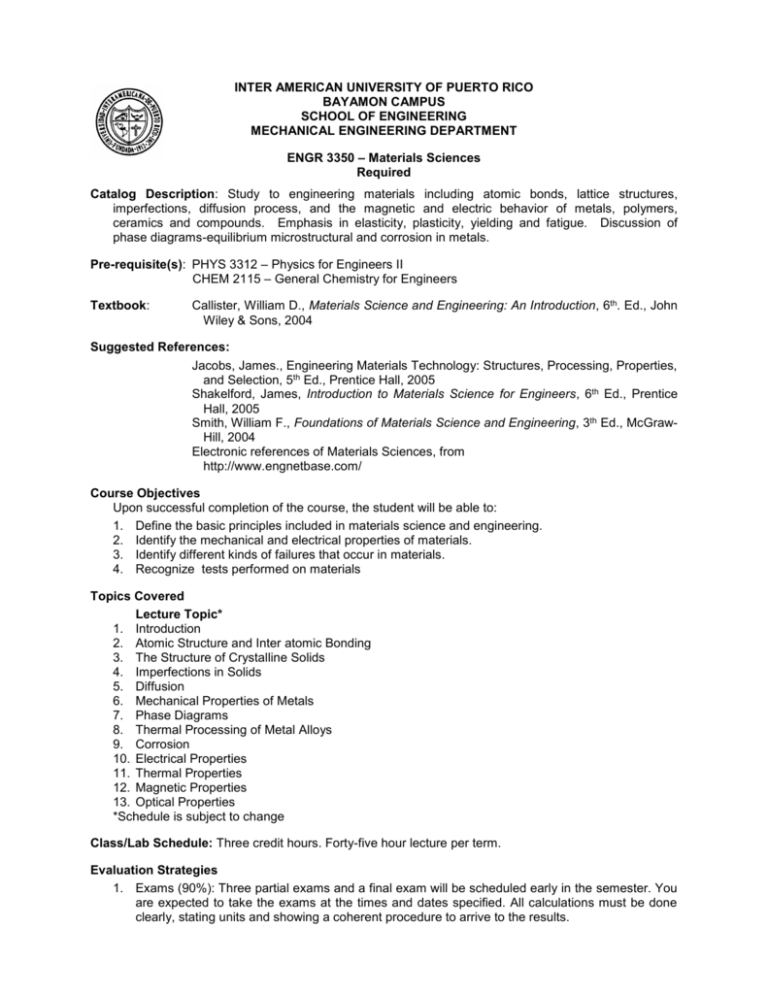
INTER AMERICAN UNIVERSITY OF PUERTO RICO BAYAMON CAMPUS SCHOOL OF ENGINEERING MECHANICAL ENGINEERING DEPARTMENT ENGR 3350 – Materials Sciences Required Catalog Description: Study to engineering materials including atomic bonds, lattice structures, imperfections, diffusion process, and the magnetic and electric behavior of metals, polymers, ceramics and compounds. Emphasis in elasticity, plasticity, yielding and fatigue. Discussion of phase diagrams-equilibrium microstructural and corrosion in metals. Pre-requisite(s): PHYS 3312 – Physics for Engineers II CHEM 2115 – General Chemistry for Engineers Textbook: Callister, William D., Materials Science and Engineering: An Introduction, 6th. Ed., John Wiley & Sons, 2004 Suggested References: Jacobs, James., Engineering Materials Technology: Structures, Processing, Properties, and Selection, 5th Ed., Prentice Hall, 2005 Shakelford, James, Introduction to Materials Science for Engineers, 6th Ed., Prentice Hall, 2005 Smith, William F., Foundations of Materials Science and Engineering, 3th Ed., McGrawHill, 2004 Electronic references of Materials Sciences, from http://www.engnetbase.com/ Course Objectives Upon successful completion of the course, the student will be able to: 1. Define the basic principles included in materials science and engineering. 2. Identify the mechanical and electrical properties of materials. 3. Identify different kinds of failures that occur in materials. 4. Recognize tests performed on materials Topics Covered Lecture Topic* 1. Introduction 2. Atomic Structure and Inter atomic Bonding 3. The Structure of Crystalline Solids 4. Imperfections in Solids 5. Diffusion 6. Mechanical Properties of Metals 7. Phase Diagrams 8. Thermal Processing of Metal Alloys 9. Corrosion 10. Electrical Properties 11. Thermal Properties 12. Magnetic Properties 13. Optical Properties *Schedule is subject to change Class/Lab Schedule: Three credit hours. Forty-five hour lecture per term. Evaluation Strategies 1. Exams (90%): Three partial exams and a final exam will be scheduled early in the semester. You are expected to take the exams at the times and dates specified. All calculations must be done clearly, stating units and showing a coherent procedure to arrive to the results. 2. Homeworks (10%): Homeworks will be made weekly and are due at the first meeting class of the next week. Solutions will be available to provide immediate feedback. Each student must work individually but team work is also encouraged for challenging problems. Grading Policy Grades are reported according to the following standard grading system: A (90-100), B (80-89), C (70-79), D (60-69), F (0-59) Contribution of Course to Meeting Professional Component Three credit hours of engineering science and two credit hours of engineering design. Relationship of Course to Program Educational Objectives** 1 2 3 Relationship of Course to Program Outcomes** a b c d e f g h I j k **The numbers and letters correspond to the Program Educational Objectives and Program Outcomes of mechanical engineering, respectively. Revised by: Prof. Esther Herrera, Date: 3/16/16
